At the heart of CityLife is creative writing. Our writers are paired in storytelling workshops with elders to create short pieces about the life experiences of ordinary, yet extraordinary, older Londoners. In an intergenerational exchange that stimulates conversation, creativity and friendships, the life writing that is produced in CityLife provides an intimate way of experiencing the real lives of Londoners and their relationship to their communities. These stories outweigh statistics, and they deepen our understanding of our communal lives.
Engaging with our community and partnering with organisations that deliver important services to the people they work with is a crucial part of our DNA. The memories and voices gathered together in our Story Archive also remind us that London has always been a place of extraordinary diversity as well as rapid change and transition — often a place of dislocation and displacement for some, but equally, a distinctive place, instilling a sense of pride and belonging for the people who live here. Working together with their communities, our writers have effectively explored the shifting relationship between place, memory, and identity; often in an inter-generational dialogue which mediates between the past and present. In doing so, they have successfully evoked a rich sense of ‘lives lived’, but, by unleashing and empowering the stories of our elders, they also offer a way of re-thinking the city that will enrich the lives of East London citizens yet to come.
Each phase outlined below has focused on a different aspect of our practice and research, and each has built on the previous to deliver. Find out more here about our Writers, our Team, and our Partners (community, institutional, and funding).
~
CityLife: Stories of Covid-19 (2020-2022)
When the pandemic began, elders became the single population most at risk from Covid-19. Our lockdown stories were gathered safely through secure in-person and remote sessions. They present us with a repository of knowledge about what the day to day of the pandemic looks like for our elders, what forms of assistance they are receiving from whom, and what they need, framed in powerful, intimate ways. The elders’ stories, plus the autobiographical companion pieces by their writers, can be found here. In 2023, we published a beautiful print anthology of the stories from this phase, which you can find out more about on our Research page.
Funded by the British Academy.
Partners: Toynbee Hall, University of Brighton, and University of East Anglia.
—
Invisible London: Place and Identity in Non-Fiction by Londoners (2017-2019)
What London do our elders inhabit and move through and what does this mean for their identity? CityLife crafted new stories about place through four series of workshops with writers and storytellers in community organizations. Analysing the pieces through the lens of cultural studies offers a way to look at the cultural scripts produced by the interactions of writers and storyteller, of memory and literature, as framed by discourse. It also allows to investigate belonging through cultural geography and how people’s relation to the space they inhabit or traverse can be mapped out. The elders’ stories, plus the autobiographical companion pieces by their writers, can be found here.
PhD in Creative Writing and Cultural Studies funded by the Stuart Hall Foundation.
Partners: Ageing Well Barking and Dagenham, AgeUK Stones End Day Centre, Cody Dock, The Pepper Pot Centre, and University of East London.
—
CityLife: Stories Against Loneliness (2016)
In 2016 we partnered with Richard House, a hospice for children with life-limiting conditions, facilitating five writer/storyteller pairings with the parents and carers of children who the hospice cared for. The parents and carers’ stories, plus the autobiographical companion pieces by their writers, can be found here.
Partners: Richard House Children’s Hospice, University of East London
—
EastLife: An Anthology of Life Writing (2014-2015)
Culture is memory; memory is collective; and elders are a creative resource for cultural history. These concepts were at the centre of EastLife – the pilot phase of our project, unearthing the cultural richness of East London that is embedded in personal experience. Community elders are not only key sources of memories and the cultural histories that enrich the local community, but, unfortunately, they are often isolated (in terms of access, mobility, and technology) from participation in cultural exchange. This first project allowed UEL creative writing students and community elders to learn a bit more about one another, with a printed anthology of life writing as the fruits of their exchanges. The elders’ stories, plus the autobiographical companion pieces by their writers, can be found here.
Partners: Canning Town Library, LinkUp/Great British Community, Stroke Association Tower Hamlets, and University of East London.
